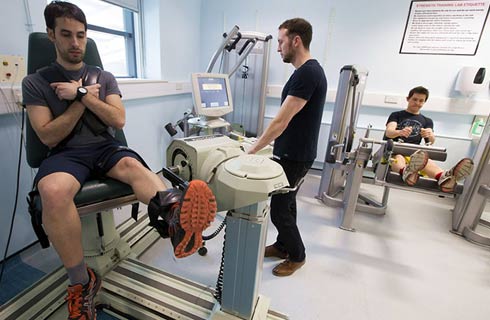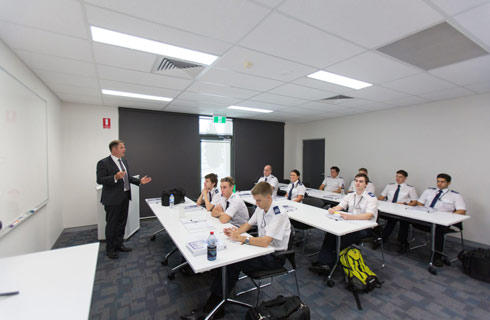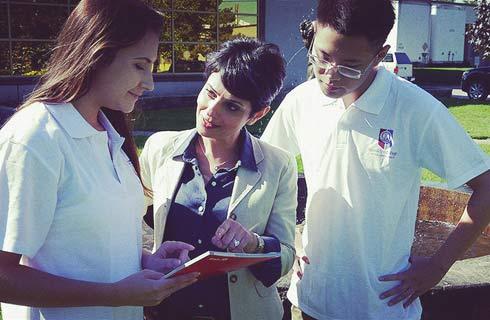国际学生入学条件
Your application (via your CV and Statement of Purpose) should clearly convey your preparedness for graduate study and research. The Graduate School requires that you hold a bachelor’s degree (UGA Double Dawgs are an exception ), or foreign equivalent, from an accredited institution with a GPA of at least 3.0 (although this can be waived under exceptional situations with justification) at the time you matriculate into our program.
Three letters of recommendation must be submitted using the online system as part of your application. You must provide a valid e-mail address for each recommender.
Please upload your CV (as a PDF) when prompted by the online application. Your CV should include, for example, your educational background, research experiences, posters and talks presented at scientific conferences, publications in scientific journals, and manuscripts that are in preparation or in review.
Please disregard the guidance provided on the online application regarding the Statement of Purpose – those instructions emphasize your past experiences, but those will be presented in your CV. Instead, we are more interested in having you articulate your “future”. The Statement of Purpose (one page, single-spaced) carries great weight in the admissions decisions and should identify your educational, research and career objectives, specify your general area(s) of interest, articulate the fundamental concepts that underlie those interests, and outline potential research problems and approaches. Your statement should be well-organized and concise, and demonstrate your knowledge of, and ability to articulate, important problems in your discipline. Portions of this statement should read like a succinct research proposal. Please list 1-3 potential major professors at the end of your Statement of Purpose.
An unofficial transcript is required from each institution of higher education attended, whether or not you earned a degree. UGA transcripts are not required for previous UGA attendance. If you are currently enrolled, provide the last expected date of enrollment. If recommended for admission, applicants will be asked to submit ONE OFFICIAL copy to the Graduate School.
Do not submit GRE scores. We no longer require GRE scores and will not consider them in our admissions process.
Please 1) Label this as “PhD ICON Supplemental Essay”; 2) describe how you envision the ICON PhD Program providing you with training or experiences that are different than a traditional disciplinary-based PhD program in your chosen field; 3) briefly share your ideas – be they general or specific – about your intended integrative research project or your previous experience with integrative work; and 4) list your preferred faculty advisor. Please limit your response to 600 words. Please merge your 1-page Statement of Purpose (above) and your Supplemental Essay into a single file, and upload this PDF when the application website asks you to upload your Statement of Purpose.
TOEFL scores can be submitted directly from ETS by using the institutional code of 5813; no departmental code is required. UGA requires at least a 550 on the paper test or 80 on the IBT (Internet-based TOEFL test) with a min. of 20 on the speaking & writing or 6.5 on the IELTS (w/no less than 6.0 on any subscore).
展开
IDP—雅思考试联合主办方

雅思考试总分
6.5
- 雅思总分:6.5
- 托福网考总分:80
- 托福笔试总分:550
- 其他语言考试:Minimum Duolingo score requirement: overall score of 105
CRICOS代码:
申请截止日期: 请与IDP联系 以获取详细信息。
课程简介
As global environmental change proceeds at an unprecedented pace, the practice of conservation is adapting to a complex set of new challenges. The conservation community has increasingly recognized that responding effectively to these challenges will require that the next generation of practitioners and scholars not only develop expertise in specific fields but also have the conceptual tools to work across disciplines.<br><br>The ICON program strives to move beyond the paradigm of interdisciplinary by reaching outside of academia to bring together academics and practitioners. Through mechanisms such as internships, collaborative research, and a practitioner-in-residence program, students will work with conservation practitioners as partners and colleagues. These experiences, along with training modules lead by communications experts, will ensure that students learn to communicate effectively and strategically with those from other backgrounds and disciplines as well as with lay audiences.
展开







 预科
预科 奖学金
奖学金 实习机会
实习机会 在校学习
在校学习 跨境学习
跨境学习 校园授课-线上开始
校园授课-线上开始 在线/远程学习
在线/远程学习














 劳伦森大学
劳伦森大学

 特伦特大学
特伦特大学

 曼尼托巴大学
曼尼托巴大学

 麦吉尔大学继续教育学院
麦吉尔大学继续教育学院

 卡尔加里大学
卡尔加里大学

 阿尔伯塔大学
阿尔伯塔大学









 美国
美国